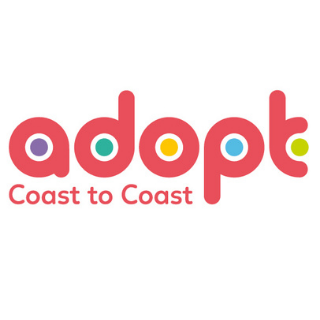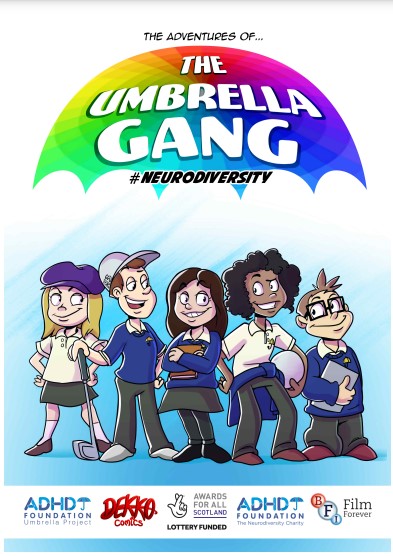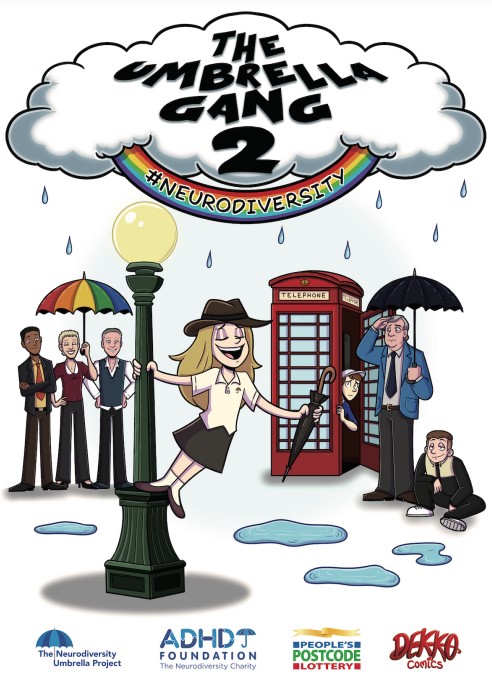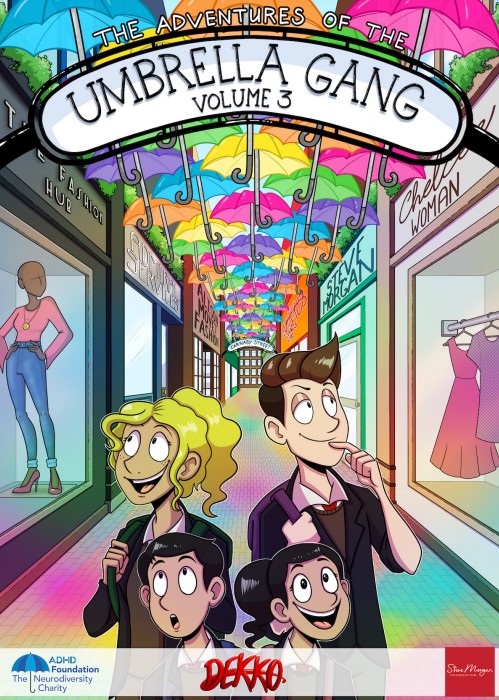Attention deficit hyperactivity disorder (ADHD) is a neurodiversity condition that affects behaviour. Although today ADHD is spoken about more openly and there is a lot more public knowledge and awareness surround an ADHD diagnosis, there are lots of different ways in which it can present which can make it tricky for adopters as well as prospective adopters who are faced with a diagnosis during the matching process.
 To help support children with the neurological condition we have pulled together some advice from the ADHD foundation – a Neurodiversity Charity that (amongst many other things) supports parents and carers so they can better help, understand and meet the needs of their child.
To help support children with the neurological condition we have pulled together some advice from the ADHD foundation – a Neurodiversity Charity that (amongst many other things) supports parents and carers so they can better help, understand and meet the needs of their child.
The ADHD foundation describe ADHD is a neurodevelopmental condition that makes it difficult for children to concentrate, to sustain attention, to sit still, to follow directions and to control impulsive behaviour. These symptoms make it difficult for children and young people to follow through on tasks in age appropriate ways which can make classroom-based learning challenging at times.
The symptoms of ADHD can be divided into two groups: inattentive behaviours and hyperactive and impulsive behaviours. Inattentive symptoms can include being very distractible, having difficulty remembering and poor organisation. Hyperactive and impulsive symptoms can include impatience, excessive movement, talking and interrupting as well as difficulties turn taking.
The organisation has produced a leaflet for parents which provides practical advice and guidance for guardians or parents of children with a diagnosis or suspected ADHD – view the ADHD foundation’s booklet for parents here.
In addition, a booklet for children can be found here and another booklet which is aimed at teenagers can be accessed here.
Treatments
There are a variety of research-backed therapies that can help relieve symptoms of ADHD. Some of the most effective approaches combine several therapies, such as medication. Stimulant medications (Ritalin or Concerta) are the most commonly prescribed. These drugs stimulate the parts of the brain that are under stimulated. These parts of the brain are related to thinking and attention. The goals of these medications are to reduce hyperactivity/impulsivity and increase focus/attention. Another example is Cognitive behavioural therapy. This approach emphasises mindfulness and teaches a child to be aware of their emotions as a way of improving attention.
What the experts say
Being a parent or carer of a child with ADHD can be confusing due to the many myths and misconceptions surrounding AHD. ADHD is a spectrum condition and whilst it can have its challenges, people with ADHD can also be spontaneous, creative, quick thinking and good at problem solving. Here at the ADHD foundation, we believe in the importance of gaining an understanding about what it means to be neurodivergent and provide support in the form of resources available free to download from our website. The resources which adopt a strength-based approach include booklets for parents and carers, an ADHD booklet for children and a teenagers guide to ADHD that supports living successfully with ADHD.
Tracy Bowyer, Parenting co-ordinator & VSL co-ordinator for the ADHD foundation
Comics for children
It can be as difficult for children to understand their ADHD diagnosis as it is for parents, so the ADHD foundation have created some Umbrella Gang comics alongside Dekko Comics, which charts the adventures of a group of primary school pupils who have different diagnosis such as dyslexia, dyspraxia, autism, ADHD and Tourettes. The comics help primary school children to understand and learn more about what it is to be neurodiverse and follows their journey through school – click the individual images below to read the three editions:
Answering questions
A lot of parents of children with ADHD get asked about their child’s condition so the ADHD Foundation have put together helpful advice in their ‘What do parents tell each other about parenting a child with ADHD?’ leaflet.
Find out more
A huge thank you to Tracy and the ADHD Foundation for sharing advice us. We are always looking for homes for children with diagnosed or suspected ADHD – if you think you could offer the support, love and nurturing a child needs to thrive t complete our enquiry form today.
If you are a parent looking for support with an ADHD diagnosis please email adoptcoasttocoast@durham.gov.uk and we will point you in the right direction.
Want to know more?
Make an enquiry Download our information pack (PDF) News and events
Calling us for free on 03000 268 268 will help us to put you in touch with our duty social worker



